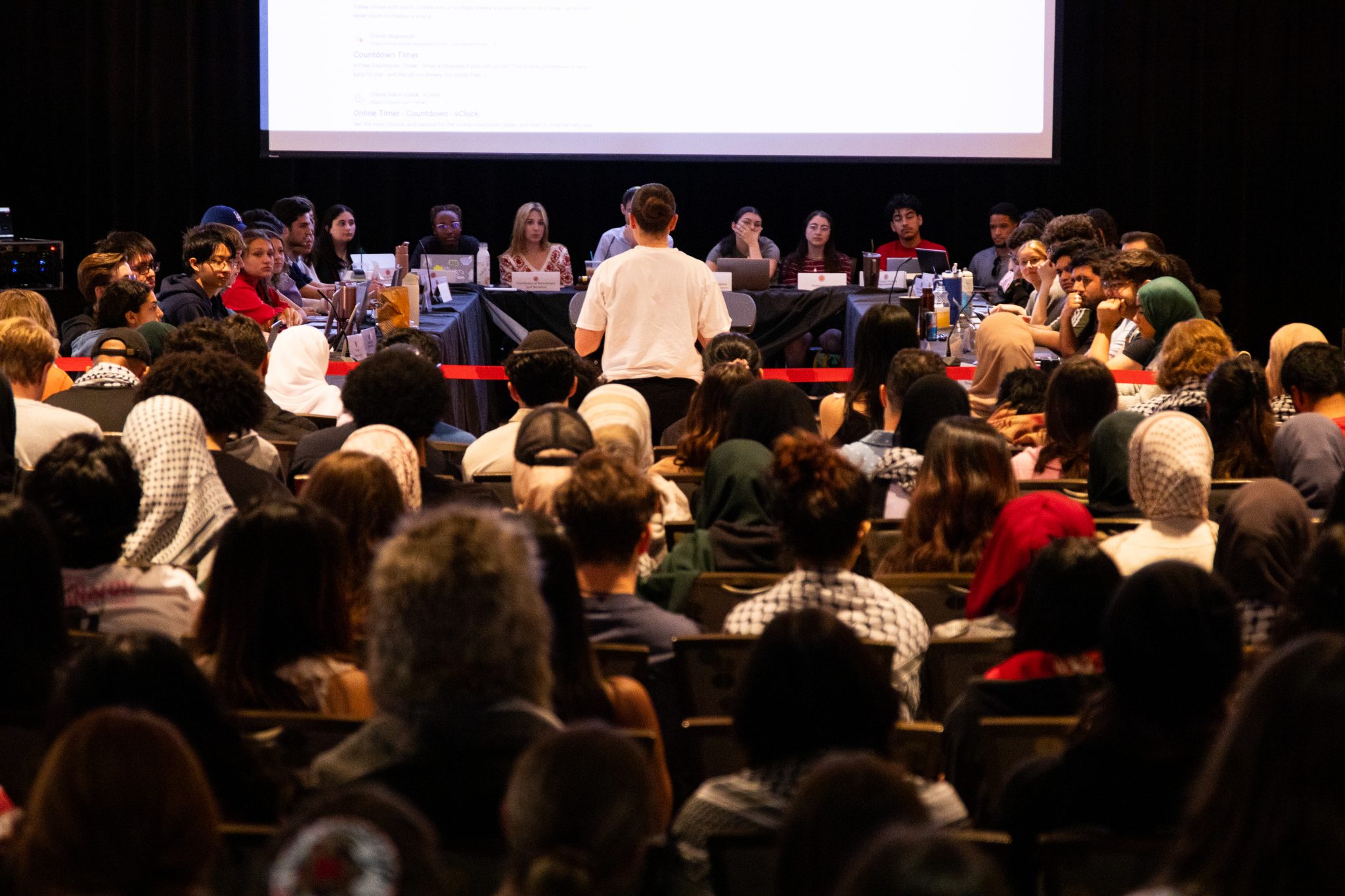More than 70 percent of the University of Maryland’s SGA legislature was appointed, according to an analysis by The Diamondback.
Twenty-six of 36 filled electable positions in the current Student Government Association legislature were appointed, excluding the four representatives that are always appointed — first-year, freshman connection and two transfer representatives. The 36 seats are traditionally filled through elections held in April.
SGA’s recruitment and retention coordinator Elise Donnellan said legislative leadership, which includes the speaker of the legislature, recruitment and retention coordinator and speaker pro tempore, first interview potential appointments.
If the interviews are successful, the legislature votes on the candidates, where a two-thirds vote is required for appointment, Donnellan, a junior environmental science and policy major, said.
The high percentage of appointments can be partially attributed to last year’s controversial SGA election, according to Eliav Hamburger, the SGA’s speaker of the legislature. The election was a “turn off” to some legislators and kept them from joining and fulfilling their SGA roles, Hamburger added.
During last year’s election, the United Maryland party filed a petition to the SGA’s governance board in an effort to disqualify the Aspire Maryland party for election violations. The petition, which needed 100 signatures for the case to be heard, was found to have at least 33 falsified signatures, The Diamondback previously reported.
Hamburger, a junior computer engineering major, said that after the 2023 election, multiple elected legislators never appeared for SGA responsibilities and several others resigned over the summer.
“There was a lot of drama and I think it drains a lot of people,” Hamburger said. “I think they may have come out very disheartened and saddened by the way the election went.”
The time commitment required for SGA has also hurt retention rates, Hamburger said.
The time commitment is a minimum of six hours per week, according to Donnellan. This includes at least two hours for general body meetings, two office hours and responsibilities for two committees, she said.
“It's genuinely a lot to be a college student at the moment and to try and be so involved,” Donnellan said.
[Reimagine Maryland’s Reese Artero elected UMD SGA president]
Hamburger said that these responsibilities can also impact student mental health.
Many SGA legislators are deeply involved in their roles, which makes it a difficult responsibility to undertake, Hamburger noted.
“People have come to me, and pretty much said, ‘I just can't do it anymore, I'm burnt out, it's too difficult, it's too demanding,’” Hamburger said.
Several students pushed back against the high appointment rates, citing that SGA is designed to represent the student body.
Ama Wootan, a sophomore hearing and speech sciences major, said the proportion of SGA appointments is “really unfortunate.”
“I think if the point of SGA is to represent the student body, I don’t think we should rely on appointed representatives at all,” Wootan said.
Jude Reagan, a freshman philosophy, politics and economics and voice performance major, said it is “astounding” and “undemocratic” for more than half of the SGA seats to be appointed.
The SGA should hold special elections for vacant seats instead of appointing unfilled seats, Reagan said.
[UMD SGA votes in support of increasing student fees, funding gender-affirming care]
But Donnellan, who also serves as SGA’s Greek residential representative, said that appointments do not necessarily indicate a lack of representation. The appointment process is “much more open” to students than the SGA elections, she added.
Hamburger said that higher voter turnout would lead to a more representative SGA.
“People, I think, really don't care who their representatives are until there's a reason for them to care, and I think that's really sad,” Hamburger said.
But Hamburger said this reality is changing. Across the past few weeks, students have been more engaged with SGA, hoping for their representatives to act as “agents for change,” he added.
Hamburger highlighted that the lack of legislative leadership last year also contributed to the lower retention rates. This legislative leadership would have helped with retention and recruiting members, he said.
The SGA has worked on new election rules to ensure results are announced on time, along with more flexible office hours, where legislators can talk with student groups and their constituents and retention events, Hamburger said.
“Those are things we are trying to do to make the job more enjoyable and more rewarding so that people stay on,” Hamburger said.
CORRECTION: Due to an editing error, a previous version of this story and its headline and graphic misstated that more than 70 percent of this university’s electable SGA positions were appointed. More than 70 percent of SGA’s electable legislators are appointed. This story has been updated.



